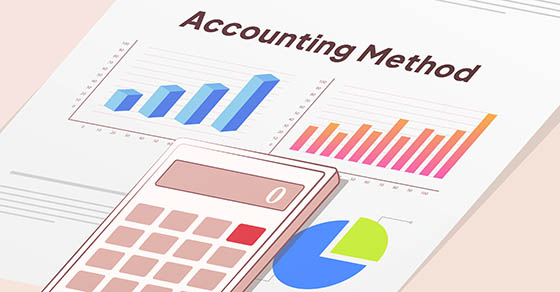

Your businesses may have a choice between using the cash or accrual method of accounting for tax purposes. The cash method often provides significant tax benefits for those that qualify. However, some businesses may be better off using the accrual method. Therefore, you need to evaluate the tax accounting method for your business to ensure that it’s the most beneficial approach.
The current situation
“Small businesses,” as defined by the tax code, are generally eligible to use either cash or accrual accounting for tax purposes. (Some businesses may also be eligible to use various hybrid approaches.) Before the Tax Cuts and Jobs Act (TCJA) took effect, the gross receipts threshold for classification as a small business varied from $1 million to $10 million depending on how a business was structured, its industry and whether inventory was a material income-producing factor.
The TCJA simplified the definition of a small business by establishing a single gross receipts threshold. It also increased the threshold to $25 million (adjusted for inflation), expanding the benefits of small business status to many more companies. For 2024, a small business is one whose average annual gross receipts for the three-year period ending before the 2024 tax year are $30 million or less (up from $29 million in 2023).
In addition to eligibility for the cash method of accounting, small businesses enjoy simplified inventory accounting, exemption from the uniform capitalization rules and the business interest deduction limit, and several other tax advantages. Be aware that some businesses are eligible for cash accounting even if their gross receipts are above the threshold, including S corporations, partnerships without any C corporation partners, farming businesses and certain personal service corporations. Also, tax shelters are ineligible for the cash method, regardless of size.
Potential advantages
For most businesses, the cash method provides significant tax advantages. Because cash-basis businesses recognize income when it’s received and deduct expenses when they’re paid, they have greater control over the timing of income and deductions. For example, they can defer income by delaying invoices until the following tax year or shift deductions into the current year by accelerating the payment of expenses.
In contrast, accrual-basis businesses recognize income when it’s earned and deduct expenses when they’re incurred, without regard to the timing of cash receipts or payments. That means they have little flexibility to time the recognition of income or expenses for income tax purposes.
The cash method also provides cash flow benefits. Because income is taxed in the year it’s received, it helps ensure that a business has the funds it needs to pay its tax bill.
For some businesses, however, the accrual method may be preferable. For instance, if a company’s accrued income tends to be lower than its accrued expenses, the accrual method may result in lower tax liability than the cash method. Other potential advantages of using the accrual method include the abilities to deduct year-end bonuses paid within the first 2½ months of the following tax year and to defer taxes on certain advance payments.
Issues when switching methods
Even if your business would enjoy a tax advantage by switching from the accrual method to the cash method, or vice versa, it’s important to consider the administrative costs involved in making the change. For example, if your business prepares its financial statements in accordance with U.S. Generally Accepted Accounting Principles (GAAP), it’s required to use the accrual method for financial reporting purposes.
Does that mean you can’t use the cash method for tax purposes? No, but it would require the business to maintain two sets of books. Changing accounting methods for tax purposes may also require IRS approval. Contact us to learn more about each method.

